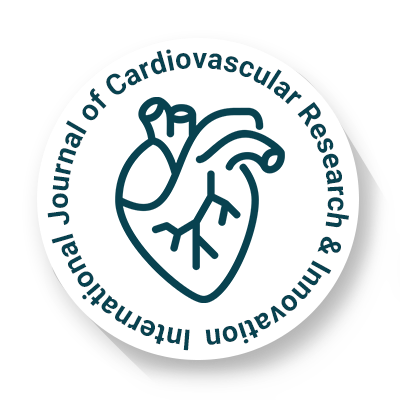
International Journal of Cardiovascular Research & Innovation
OPEN ACCESS

OPEN ACCESS
Precision medicine in cardiology is transforming the way cardiovascular diseases are diagnosed, treated, and managed. Unlike traditional approaches that rely on generalized treatment protocols, precision medicine tailors interventions to an individual’s genetic profile, lifestyle, and environmental influences. This innovative approach enhances treatment efficacy while minimizing adverse effects, ultimately improving patient outcomes.
At the core of precision cardiology lies the integration of genomic data, biomarker analysis, and advanced imaging techniques. By leveraging these tools, healthcare providers can predict disease risk, identify early warning signs, and develop targeted therapies. For example, genetic testing has revolutionized the management of inherited cardiac disorders such as hypertrophic cardiomyopathy and long QT syndrome, allowing for preemptive interventions and personalized treatment regimens.
One of the most significant applications of precision medicine is in pharmacogenomics, where genetic variations influence an individual’s response to cardiovascular drugs. Patients with specific genetic markers may metabolize medications differently, impacting their efficacy and safety. This knowledge enables cardiologists to customize drug prescriptions, ensuring optimal dosing while reducing the risk of adverse reactions. Personalized anticoagulation strategies based on genetic profiling are already being implemented to improve the management of atrial fibrillation and venous thromboembolism.
Additionally, precision medicine is reshaping the prevention and management of atherosclerosis and coronary artery disease. Advanced lipid profiling and inflammatory markers help stratify patients based on their cardiovascular risk, leading to more proactive and individualized treatment strategies. Machine learning algorithms and artificial intelligence (AI) are further enhancing precision cardiology by analyzing vast datasets to identify hidden patterns and predict disease progression with unprecedented accuracy.
The field is also witnessing groundbreaking advancements in regenerative cardiology, where stem cell therapy and gene editing techniques offer new possibilities for repairing damaged heart tissue. These cutting-edge innovations hold promise for patients suffering from heart failure, myocardial infarction, and congenital heart defects, shifting the focus from symptom management to disease reversal and restoration of cardiac function.
Despite its immense potential, the widespread implementation of precision medicine in cardiology comes with challenges, including high costs, data privacy concerns, and the need for extensive research validation. However, continued advancements in genomic research, wearable health technologies, and AI-driven analytics are steadily overcoming these barriers, paving the way for a more personalized and effective approach to cardiovascular care.
Understanding and embracing precision medicine is crucial for the future of cardiology, as it holds the potential to redefine patient care by offering tailored treatment solutions based on individual profiles. Journals such as the International Journal of Cardiovascular Research & Innovation serve as a crucial platform for researchers, doctors, and published authors to share groundbreaking discoveries, foster interdisciplinary collaboration, and advance the scientific progress necessary to integrate precision cardiology into mainstream medical practice.